
Guests
- Mary Colemanprofessor of political science at Jackson State University.
- Jim Sessionsexecutive director of the Highlander Center.
On the eve of Super Tuesday, Mary Coleman discusses issues of political interest in Mississippi in light of her recent work in emerging democracies in Africa and Eastern Europe. She focuses on problems of poverty, unemployment and racism. She highlights the twin pillars of democracy and poverty in the
U.S. and contends that government and corporations must be held accountable. Jim Sessions discusses political issues in Tennessee, including the traditional use of social issues, such as the debate over evolution in schools, to distract from real issues, such as job insecurity. Both report that Republican candidates have largely avoided both states.
Transcript
AMY GOODMAN: You’re listening to Democracy Now! I’m Amy Goodman. Democracy Now! is Pacifica’s national daily grassroots election show. Coming up in just a little while, we’re going to be hearing from Larry Bensky out in California talking to former Speaker of the House Tom Foley, talking about, for example, his congressional pension and other issues, what he sees today in the 104th Congress.
But before we do that, we’re going down South. Tomorrow is Super Tuesday. Dole says this is key. If he wins all the states tomorrow, then his victory is absolutely assured. Pat Buchanan says he’s going to continue. There’s word that Forbes may be dropping out. We’re talking about 362 Republican delegates at stake tomorrow, and almost two-thirds of them are in Texas and Florida. We’re not going to focus on those states today; we’re going to be talking about them tomorrow. Larry Bensky is currently in Texas, and we’ll be joining with him and some activists. We’ve chosen to look at two other states. We’re going to be looking at poverty and the issue of public education and creationism in Tennessee and Mississippi. We’ll be joined by two guests, a professor from Jackson State in Mississippi, and we’ll also be joined by the head of the Highlander Center, a longtime activist training center in Tennessee. But before we do that, we thought you — we would bring you a little of this.
NINA SIMONE: [singing] Alabama’s gotten me so upset
Tennessee made me lose my rest
And everybody knows about Mississippi Goddam
Alabama’s gotten me so upset
Tennessee made me lose my rest
And everybody knows about Mississippi Goddam
Can’t you see it
Can’t you feel it
It’s all in the air
I can’t stand the pressure much longer
Somebody say a prayer
Alabama’s gotten me so upset
Tennessee made me lose my rest
And everybody knows about Mississippi Goddam
AMY GOODMAN: It’s hard for me to think of Mississippi and Tennessee without thinking of Nina Simone. Thank you for that, Nina.
Right now we go down to Mississippi and Tennessee. We’re joined by professor Mary Coleman, who is a professor of political science at Jackson State University in Mississippi, and we’re joined by Jim Sessions, who is head of the Highlander Center in Tennessee.
And we welcome you both to Democracy Now!
MARY COLEMAN: Thank you.
JIM SESSIONS: Thanks.
AMY GOODMAN: You know, I don’t think many people realize, Jim Sessions, that Rosa Parks actually trained at the Highlander Center in Tennessee. Many people think of her as a independent, tired woman who just decided she wasn’t going to sit in the back of the bus. But, in fact, she was a trained activist.
JIM SESSIONS: Mrs. Parks was a seamstress in Montgomery and the secretary of the NAACP chapter in Montgomery and was an active participant in workshops about desegregation in the public schools and the future of integration in the South. So, there’s no accident she sat down. She knew what she was doing.
AMY GOODMAN: Now, it sounds like you’re continuing the kind of training that Rosa Parks was involved in your democracy schools. Can you tell us about them?
JIM SESSIONS: Well, just like the — just like those days, in workshops that Rosa Parks and Septima Clark and Dr. King and John Lewis and Andy Young and others participated in, our focus is on communities and grassroots actions, like the Montgomery bus boycott was a homegrown, local activity. And so, our attention continues to be on community organizations and community-based problem solving by local folks themselves. And so, our devotion is still the same. It just happens in different ways these days.
AMY GOODMAN: As I said, we’re also joined by Dr. Mary Coleman of Jackson State, who has an extremely interesting history. She’s been involved with chronicling the struggle for political and social freedom in Mississippi, is writing a book called Exits about the opportunities for African Americans in Mississippi to exit out of poverty, studying three generations in Indianola, Mississippi. Now, is this right, Mary Coleman, where the original, seminal work Caste and Class in a Southern Town was based?
MARY COLEMAN: That’s exactly right, Dollard’s work in the ’30s. And Hortense Powdermaker also studied the same town later on, toward the end of the 1930s. Her book was After Freedom.
AMY GOODMAN: What are you finding today in Mississippi in terms of African Americans and their standard of living?
MARY COLEMAN: Well, particularly in the Mississippi Delta, we’re finding double-digit unemployment rates. We’re finding, increasingly, as we are across the United States, that people who are marginally skilled, marginally educated, simply don’t have a place in the workforce, as they did, say, in the 1970s, throughout the U.S., but, in particular, the communities that have been the hardest hit are the ones that do not have an agricultural base anymore, that depend on people working. There has been some mechanization of work, and thus the ability of people who are just marginally skilled to find a job that paid a decent wage, that possibility is not great anymore, in the Delta or elsewhere.
AMY GOODMAN: Now, you, in addition to looking at Mississippi itself and to looking at people in Mississippi, have been going around the world looking at first-time voters in places as far-flung as Baku, in places like South Africa. You observed the elections there, in Zimbabwe, as well. And then, in April, you’re headed off to where?
MARY COLEMAN: Bucharest.
AMY GOODMAN: Bucharest.
MARY COLEMAN: Romania.
AMY GOODMAN: Now, what are the connections you make when you look at elections and electoral politics in other places and you look at elections in this country, from your vantage point in Mississippi?
MARY COLEMAN: Yeah, yeah, thanks for asking that question, because it’s not always obvious to people when I speak with them.
When I was in Baku, I was interested, obviously, in observing the parliamentary elections for the United States, but I also had an opportunity to speak at four private universities there to students who, for the first time in their lives, will shortly be casting ballots. I was interested in their understanding about what democracy is and what it requires from its citizens. And so, for me, that was the challenge, to talk to them in a vocabulary that utilizes words like “accountability,” “citizenship,” “liberties,” the balance between the personal rights of individuals and group rights and social responsibilities.
Those are the same kinds of issues that we have been dealing with in Mississippi for a very, very long time, trying to get citizens to understand what they must do in order to keep their government accountable, and trying to get the state and the government to understand its varying responsibilities to citizens and to itself. And increasingly in America, there is the corporate citizen, that we also must get that citizen in line, so that, together, all of these publics can address this question of poverty and why it is, in America and elsewhere, that young people getting out of high school and college don’t have any real prospects for work, except in some European countries. We don’t have an easy high-school-to-job transition in America, and we sorely need that.
Now, in the newly developing democracies, say, in Azerbaijan, there simply are not jobs for people to do, especially people who do not have skills. And so, this country is in its infancy, both in terms of market economics and in terms of democracy, and these twin pillars sometimes lead to competing ends. But it’s important, I think, that citizens everywhere know that they can and must make government and corporate America accountable, even as they become more fully mobilized and become more accountable to their own societies and their own communities.
AMY GOODMAN: When you teach people about liberty as an accountability abroad, I mean, in this country, there is a great racial divide. What do you do in a country that, in many ways, is seen as highly developed, that has — as many ways, is called a democracy, and yet for many people, they may have less access to that than people who have never voted at all in other countries?
MARY COLEMAN: Yeah, that’s the number one question I was asked, especially in Baku. I think the very fact that I am a Black American made the students want to understand why is it that I could stand there and talk to them about democracy, knowing full well that its promise is rarely — has been rarely realized for many Black Americans, especially in Southern places.
But I think the connection is this. Even as each generation struggles to make the state and to make itself more accountable, we encounter new problems. In America — and I think this is one of the problems that the Republican candidates are having a hard time handling, and I think it’s going to be an issue that President Clinton will need to answer more directly than he has — how is it that America has advancing technology, that advancing technology is creating jobs, while just as rapidly it is making other people obsolete? And people in my neck of the woods have been obsolete for a very long time. So, now we’re making people who have been in the workforce obsolete through no fault of their own. They find themselves with pink slips, and they’re understandably angry and anxious. So, what we do as a nation to address that problem, it seems to me, is at the core of the discourse that ought to be going on in America, but also throughout the Western world.
AMY GOODMAN: And what about people who, in fact, have never had access to jobs in this country?
MARY COLEMAN: Well, in this country, that segment that has had the hardest time with jobs has been Black males, especially those males between 18 to 32 years old. Their life chances have always been somewhat circumspect and limited. That hasn’t changed. It’s gotten worse. In the Mississippi Delta, where I’ve been doing my work, in Sunflower County, the unemployment rates for Black men in that age cohort is sometimes up to 50%. There simply are not jobs there for them to do. You might ask, “Why, then, don’t they move elsewhere, to places where jobs are more plentiful?” The difficulty is that throughout rural America, we are finding that there simply are not job prospects that make good sense in terms of the wage that is offered and in terms of the time away from family that men, and often women, must spend. So, the prospects for that segment have gotten worse.
AMY GOODMAN: We’re talking to professor Mary Coleman. She is professor of political science at Jackson State University in Jackson, Mississippi. And we’re going to come back to you, but we’re going to change the subject for a second, go back to Jim Sessions, head of the Highlander Center in Tennessee — and again, Tennessee and Mississippi, two of the states where primaries are taking place tomorrow. Yesterday, on the front page of The New York Times, headline, “Creationism Fight Returns to Nation’s Classrooms.” And it says, “Seventy years after John Scopes was convicted of teaching evolution in Dayton, Tenn., the State Legislature is considering permitting school boards to dismiss teachers who present evolution as fact rather than a theory of human origin.” Jim Sessions, can you shed some light on this movement to return to creationism teachings in the public school?
JIM SESSIONS: Well, I think in this state, it’s somewhat of a marginal issue. And it’s interesting that it comes up right before this primary and right before these general elections in the fall. A lot of times in Tennessee, social issues have been used — and the more outrageous, really, the more the press pays attention to them — to distract people from more basic problems that Dr. Coleman was talking about, mainly the vulnerability and insecurity of people in terms of the job market. So people get distracted off. We have another bill up about putting the 10 — making it law for the 10 Commandments to be posted in every family home and school and public place and so forth. But these, these come around. They come around often. They come around mainly as social distractions for more basic issues that people face.
AMY GOODMAN: Can you tell us what is going on in Tennessee today? And what do you see as the key issues?
JIM SESSIONS: Well, I think it reflects what we just heard from African American Mississippi. This is a predominantly white part of Tennessee, on the southern mountains, and traditionally Republican, and goes way back. And Republicans are probably more comfortable with Robert Dole, because they fear change of almost any sort, right or left. And so, I think people, traditional Republicans, are going to be voting tomorrow pretty much conventionally.
But someone who’s making a big play to lots of those people and playing on job security and vulnerability, of course, is Pat Buchanan. And he’s speaking to the kinds of insecurities and fears of the future and scapegoating other people for people’s situations that is attracting attention from folks who are frightened. And not to overlook the hypocrisy and the bigotry and the racism, the homophobia of Pat Buchanan. He still is speaking to the fear and insecurity and vulnerability of factory workers who are losing jobs, of textile and clothing workers, of mining, electronic loss to the maquiladoras and so forth. So, I think it’s really important to watch what that kind of vote does. Tennesseans tomorrow are not going to get to vote for Lamar Alexander, like some Republicans would like to have, and where they will go and cast those votes might be really interesting.
AMY GOODMAN: Jim Sessions, head of the Highlander Center, traditionally activist center, going on for decades, in Tennessee. Let’s return to Mary Coleman at Jackson State. Have the candidates come through Mississippi?
MARY COLEMAN: Buchanan was here. I believe it — he was here by way of telephone yesterday, when some 30 supporters gathered to listen to his telephone message. He was not here in person. Elizabeth Dole has been here. She was here, I think, last week. Dole has not been here thus far. So we’ve not gotten a lot of attention from the Republican candidates, no.
JIM SESSIONS: Robert Dole — I mean, Pat Buchanan was almost a stealth candidate in East Tennessee. He slipped in pretty — without a lot of notice and showed up at some Christian academy to make a talk. And there was news coverage of that speech, but there was not a lot of play before he got here. He was in and out of town before anyone knew it.
AMY GOODMAN: Professor Coleman, let me ask you that question about the key issues in Mississippi today. And would you say that they’re different for whites and for Blacks?
MARY COLEMAN: Well, I think the key issues are the same for poor Blacks and whites. I am not saying that they understand that they’re the same, but they are the same. The quality of public education is a big question in Mississippi. The resegregation of public schools is certainly important in Mississippi. As you know, poor whites are not able to go to most of the private parochial schools, and therefore the education received by them is received in public schools or at home, so that there has to be some way in Mississippi to get public schools up to the quality that they need to be, so that poor children can access better opportunities when they’ve received their first 12 years of education.
Also in Mississippi these days, the Democratic Party is facing, continues to face, I think, an issue of isolationism. That is, the most dependable Democrats in Mississippi are Blacks, and for the most part, since the mid-1960s in the state, we’ve seen more and more whites leave the Democratic Party, not necessarily going always to the Republican Party, some just staying as independent, but that very tenuous coalition of Blacks and whites that we were able to get during the early 1980s in Mississippi has all but dissipated. So I think a part of the progress that we’ll have to make in Mississippi will mean the revitalization of the Democratic Party.
I also think, on the Republican side, that the issues that tend to unite the Republicans in Mississippi are all negative issues. I remember discussing with some of the students in Baku whether or not they thought their freedoms were negative freedoms or positive freedoms. And when we look around the country at constitutions and bill of rights, we often see a bunch of negative freedoms. But in any case, I’m reminded in Mississippi that among the Republicans, it seems to me that what unites them is this negative notion of what they have to be against, rather than what they are for. They are against quotas. They are against set-asides. They are against not having an opportunity to do school prayer. They are against a number of things. But what are they for? I think it is harder for people to forge a positive unity, especially when that group of people wants to be so reactionary, so distant, wants to separate itself from one or another group of people —
AMY GOODMAN: Professor Coleman —
MARY COLEMAN: — within their same community.
AMY GOODMAN: Professor Coleman, we’re going to have to end on that note. I want to thank you very much for joining us from Jackson State, and also thank Jim Sessions for joining us from Tennessee. In a future discussion, we have to talk about the church burning that has just taken place in Knoxville, Tennessee. That is for a future show. You’re listening to Democracy Now! I’m Amy Goodman. Back next with Tom Foley.

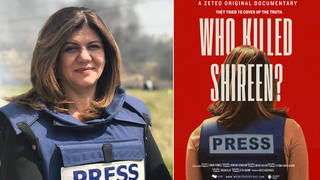

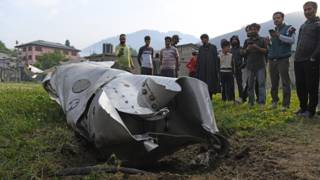
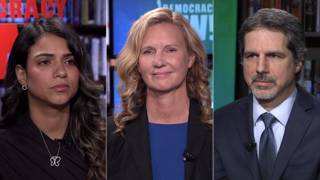





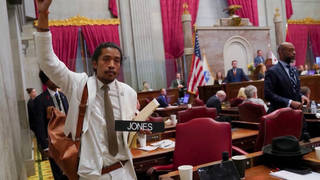

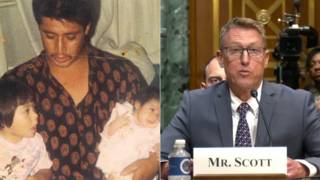
Media Options